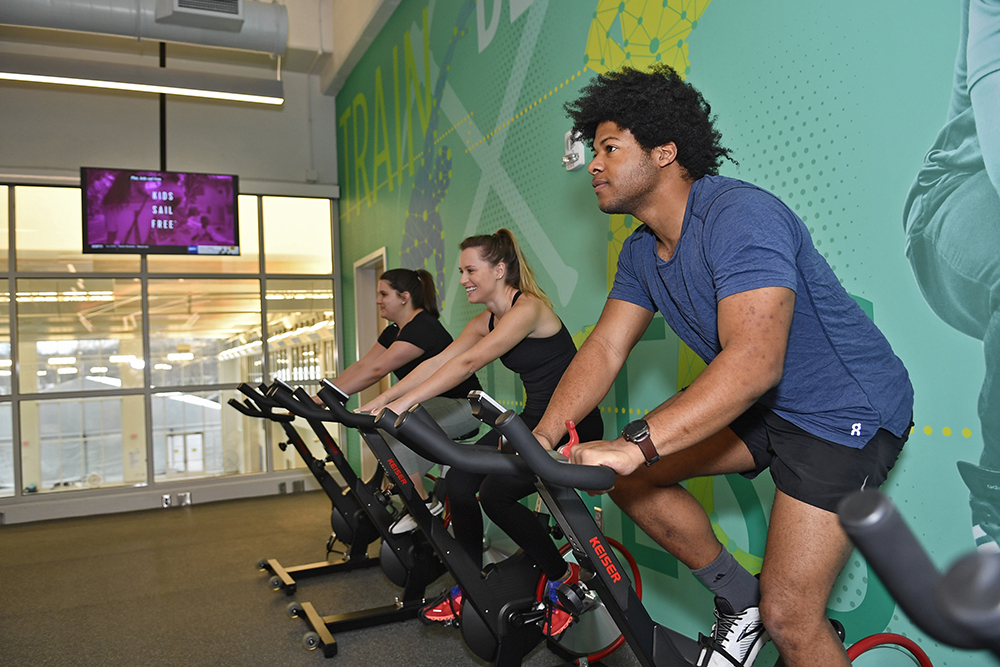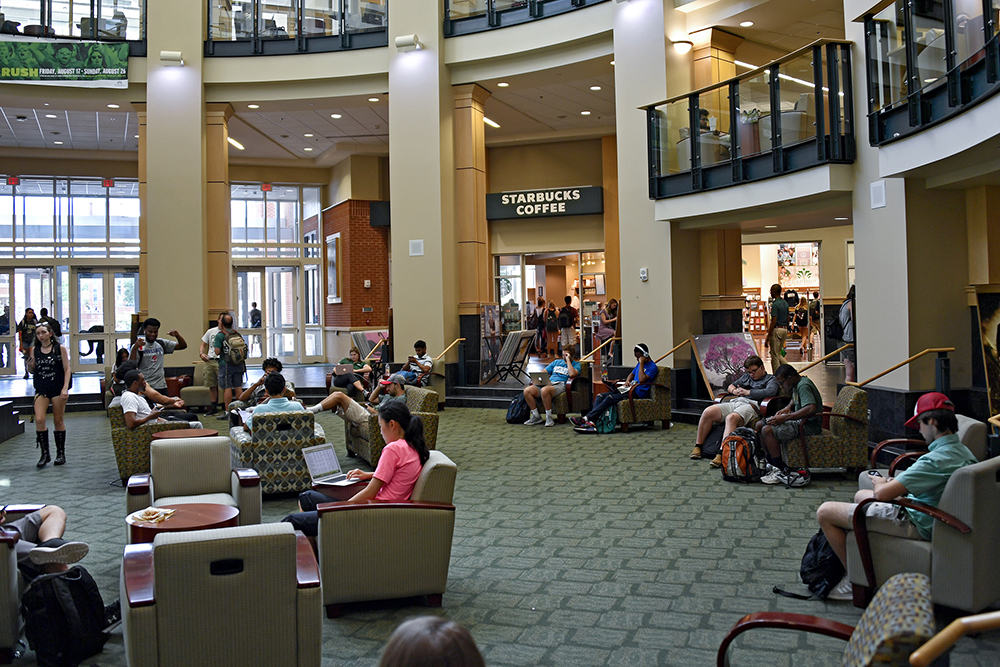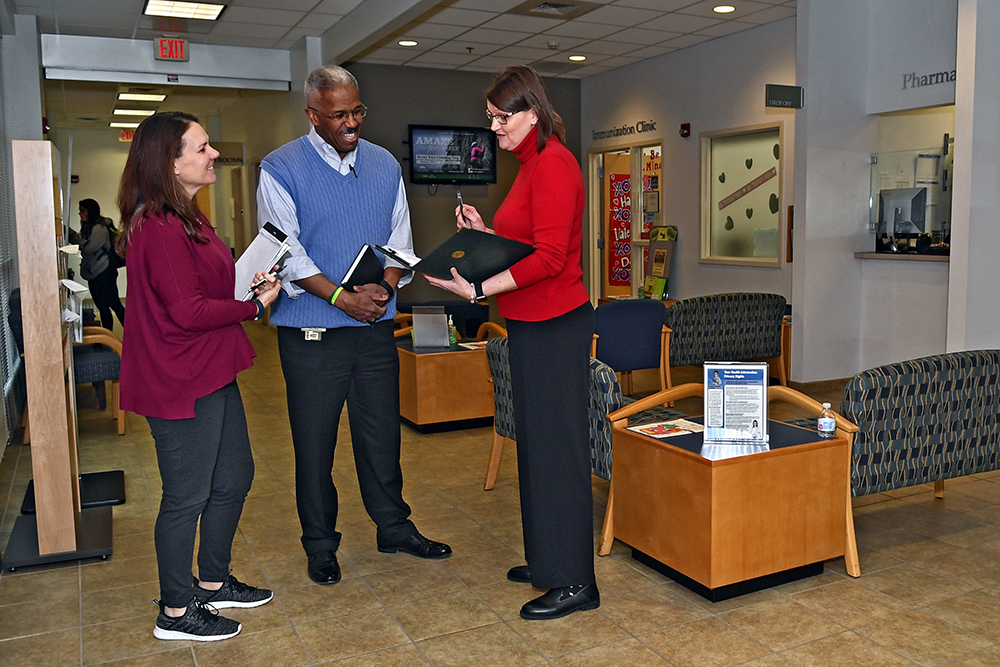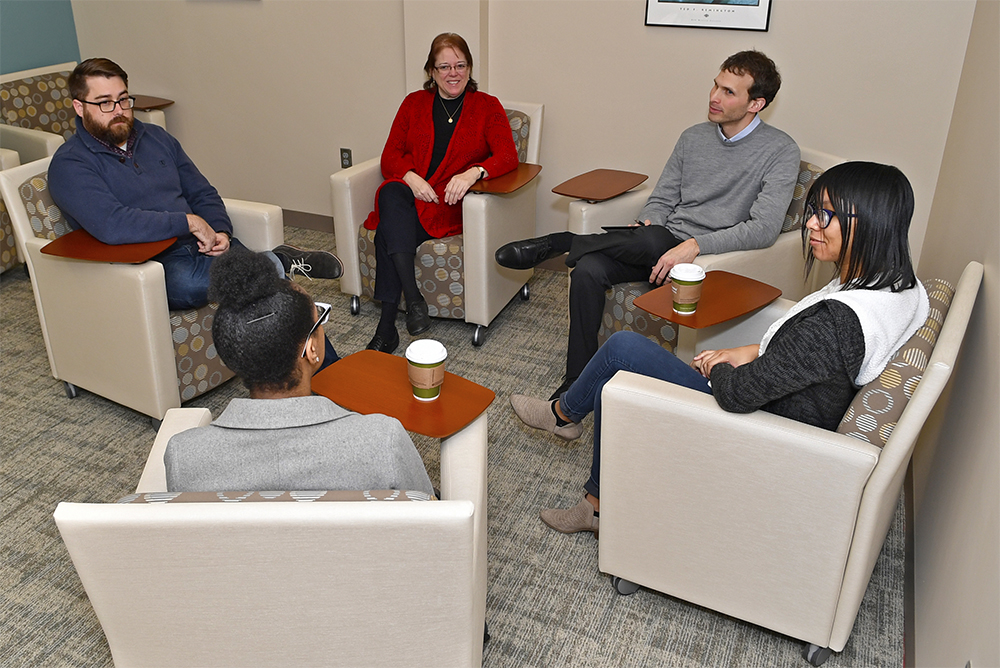A lasting legacy. This story is part of a series demonstrating the achievement, impact and growth of UNC Charlotte under the leadership of Chancellor Philip L. Dubois.
Traditionally, colleges and universities are expected to provide students with the academic tools to discover their career paths. Increasingly, institutions are focusing on equipping graduates with the skills to thrive holistically.
In a study of more than 30,000 college graduates across the United States, the 2014 Gallup-Purdue Index Report categorized well-being across five dimensions: purpose, social, financial, community and physical.
The report concluded, "The odds of thriving in all areas of well-being more than double for graduates when they feel their colleges prepared them well for life outside of it."
At UNC Charlotte, Chancellor Philip L. Dubois’ strategic leadership has been evident in the development of facilities and programs designed to meet students’ overall wellness needs.
The Office of Student Assistance and Support Services (SASS) works with students on a broad range of issues that potentially can interfere with their ability to be successful academically or personally.
Associate Dean Larry Gourdine, director of SASS, stated the chancellor is “very committed and dedicated to the success of UNC Charlotte students,” which has led to the addition of SASS Office staff to meet the growing needs of students.

University Recreation Center
The most recent addition to campus, the University Recreation Center (UREC) opened in January. The 148,000-square-foot facility, dedicated solely to health and wellness, is receiving rave reviews. Since Jan. 8, more than 12,000 students have used its offerings.
“Here at UREC, there is a place for everyone to get involved in something that they enjoy,” said Reagan LaBor, who is pursuing a master’s degree in exercise science. “Whether it is swimming, playing board games or working out after a long day, UREC is a place where everyone is welcome.”
Communications studies major Roman Moise said the new recreation center is personally beneficial and provides enhanced value to 49ers.
“It adds an indoor space where students can come together and get fit. Campus was missing a venue like this before,” he said. “It's easier to try and achieve the goals you set. The sheer amount of room allows students to try things they've never done before.”

Popp Martin Student Union
UREC is located directly next to the Popp Martin Student Union, named for two dedicated alumni, Karen Popp, ’80 and Demond Martin ’97. When it opened in 2009, known then as the Student Union, the multipurpose facility—strategically situated where the paths of thousands of students converge daily—met the urgent need for a central gathering space on UNC Charlotte’s 1,000-acre campus.
For 2018-19, more than 2.3 million students and other visitors utilized the Student Union. The highest usage day: Aug. 20, 2019, with 20,156 constituents on the first day of classes for fall semester.
The Student Union is headquarters for student engagement with access to more than 400 registered student organizations, up from approximately 245 when Dubois arrived as chancellor in 2005.
“Involvement in student organizations helps foster growth in leadership and interpersonal skills and builds campus connections that complement students’ academic careers,” said Heather Miller, associate director for Student Involvement.

Student Health Center
A state-of-the-art Student Health Center, which opened in 2007, and the nearby Christine F. Price Center for Counseling and Psychological Services building, dedicated in October 2017, also address the importance of health and well-being to the success of any student.
“Our ability to provide comprehensive medical care to more students has expanded over the past 13 years with the addition of more physicians and two psychiatrists,” said David Rousmaniere, director of the Student Health Center. “Our medical staff is positioned to more adequately address the growing health needs of our students, so they are more likely to enjoy academic success.”

Center for Counseling and Psychological Services
“Our No. 1 goal is to help students succeed here, and we know that students who feel mentally and physically engaged, stay connected and have a better chance of success,” said David Spano, associate vice chancellor for Student Affairs.
He noted the chancellor’s influence of CAPS’ growth, which has added psychologists and social workers.
"In just the last two years, we've seen a 20 percent increase in demand for mental health services among students, which is not unique to UNC Charlotte, but it is a pattern that follows national trends," said Spano. He added the University has adjusted its operations to meet the needs of a greater number of residential students.
UNC Charlotte had seven full-time staff counselors to serve nearly 17,000 students when Spano joined the University in 2003. Now, CAPS employs 18 counselors plus three full-time interns and one full-time post-doctoral fellow for the University’s nearly 30,000 students.
UREC director Jim Walczyk summed up the importance of focusing on students’ physical, emotional and social development.
“Research tells us that students who feel connected to the University are more likely to stay and are more likely to succeed, which leads to graduation,” he said.